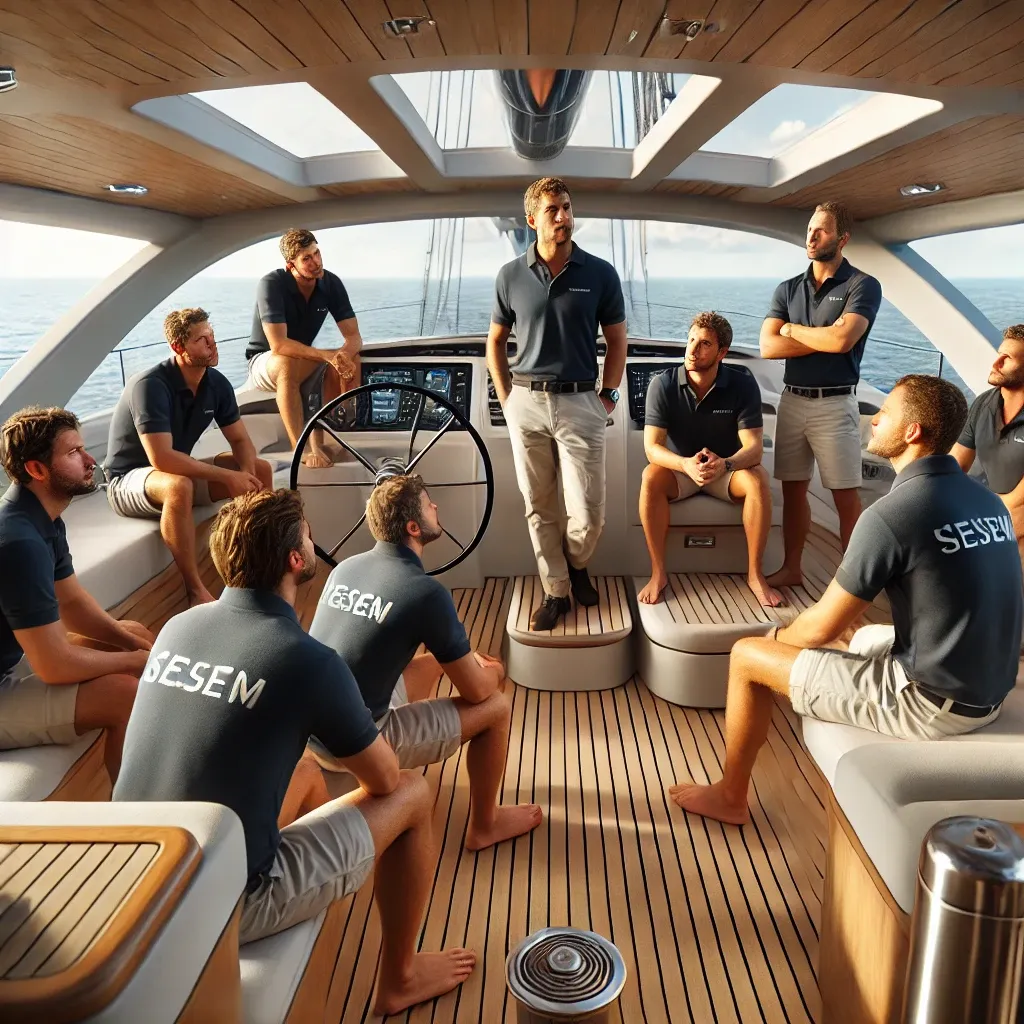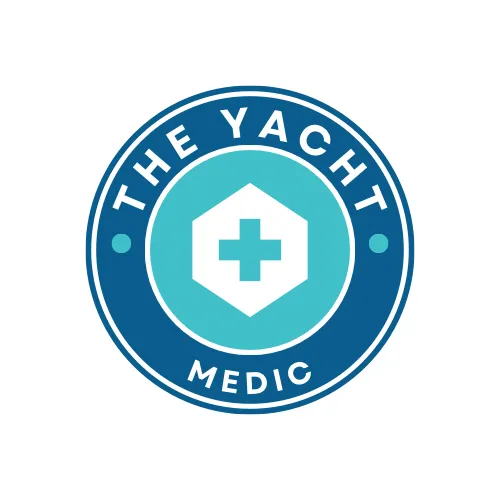See Our Latest Blogs
Beyond Boundaries, Beyond Rescue
Mastering Self Reliance At Sea

Crew Debrief After a Death at Sea – Why It Matters More Than You Think
Crew Debrief After a Death at Sea – Why It Matters More Than You Think
When a medical emergency happens at sea—especially one that results in a death—most crews know what to do operationally. But it’s what happens after the incident that truly tests your leadership.
The CPR is over. The guest didn’t survive. The body has been respectfully cared for, the family informed, and authorities notified.
Now what?
The next 30 minutes could shape your crew’s emotional resilience—not just for this trip, but for the rest of the season, or even their career.
Why the Crew Debrief Is Critical After Death at Sea
Death onboard is a confronting, emotional event—especially when it happens in front of crew who’ve worked so hard to save someone.
Whether it’s a guest or crew member, the impact ripples through everyone:
✔ The stewardess who delivered CPR
✔ The deckhand who called for help
✔ The captain who made the call to stop
Without a structured debrief, emotions linger:
❌ Guilt
❌ Shock
❌ Self-blame
❌ "Could I have done more?"
The Yacht Medic Approach – Running a Professional Crew Debrief
1. Call the Crew Together – Privately, No Distractions
✔ Mandatory attendance—this is about care, not judgment
✔ Radios off, no guests around
✔ Make it clear: this is confidential, safe, and necessary
2. Recount the Medical Event Factually
✔ What happened—minute by minute
✔ What went well
✔ What was challenging
✔ What changes could be made for next time
🗝 Tip: Stick to facts to help the team process what really happened—adrenaline clouds memory.
3. Acknowledge the Emotional Impact
✔ How is everyone feeling now that it’s over?
✔ Validate every response—shock, anger, guilt, tears, numbness—all are normal
✔ Remind the team: they followed protocol, they did their job, and none of this was their fault
4. Explain What Happens Next
✔ Medical, legal, and operational steps
✔ Family has been informed and support is in place
✔ No blame will be assigned—this is about care, not criticism
5. Psychological First Aid – The Next Few Days Matter
✔ Offer time off duty to those most impacted
✔ Provide access to psychological support if needed
✔ Watch for delayed reactions: sleep issues, isolation, mood changes
✔ Schedule a follow-up check-in
Captain’s Note:
The strength of your leadership shows here—not just in how you run an emergency, but in how you protect your crew afterwards.
Don’t skip the debrief.
Don’t brush off the emotional impact.
This is what keeps good crew operating at their best—and protects them long-term.
Final Thought:
At sea, you train hard for the physical emergency. But what defines great leadership is how you handle what happens after.
Psychological First Aid should be standard practice on every superyacht. Protect your team. Build your culture. Do this well.
Disclaimer:
This post is for educational purposes only. It is not medical or psychological advice. Always follow your yacht’s medical protocols and consult telemedicine or mental health professionals after serious incidents.
Reference List:
International Maritime Organization (IMO) – International Convention on Standards of Training, Certification and Watchkeeping for Seafarers (STCW)
Guidelines for training and emergency procedures onboard, including medical care.
https://www.imo.orgUK Maritime and Coastguard Agency (MCA) – The Ship Captain’s Medical Guide (22nd Edition)
Comprehensive guide for medical care onboard, including handling death at sea.
https://www.gov.uk/government/publications/the-ship-captains-medical-guideWorld Health Organization (WHO) Psychological First Aid: Guide for Field Workers
Evidence-based framework for offering immediate psychological support after trauma.
https://www.who.int/publications/i/item/9789241548205International Transport Workers' Federation (ITF) – Seafarers’ Mental Health Guidelines
Best practices for supporting crew mental health and wellbeing in maritime environments.
https://www.itfseafarers.orgMaritime UK – Mental Health Awareness and Resources for Seafarers
Practical tools and guidance for managing psychological risks and emotional wellbeing at sea.
https://www.maritimeuk.orgAmerican Psychological Association (APA) – Debriefing After Trauma
Evidence and guidelines on conducting effective psychological debriefs after critical incidents.
https://www.apa.orgInternational Maritime Health Association (IMHA) – Recommendations for Mental Health at Sea
Guidelines focused on mental health management and crisis response in maritime operations.
https://www.imha.netWorld Extreme Medicine (WEM) – Psychological First Aid in Remote and Extreme Environments
Training resources and guidelines for remote medics and expedition teams.
https://worldextrememedicine.comMedical Support Offshore (MSOS) THEMIS Telemedicine Guidelines
Telemedical guidance and best practice for managing medical and psychological emergencies onboard superyachts.
https://www.msos.org.uk
Sail Safely with Expert Medical Training
Resilience & Psychological First Aid For Yachts

Resilience First Aid (RFA) is a proactive approach to mental health, designed to equip yacht crew with the skills to prevent burnout, manage stress, and strengthen mental resilience.
Psychological First Aid (PFA) is an
immediate, compassionate response to mental distress after a crisis,
support each other emotionally, reduce trauma impact, and promote recovery
after major incidents.
Medical First Aid & Planning for Yachts

This course is designed to equip yacht owners & crew with essential first aid skills and the knowledge to set up a well-stocked and effective medical kit. Whether you're preparing for remote cruising or need to update your onboard medical resources, this course ensures you’re ready for any medical emergency.
Yachts operate in remote locations, often far from immediate medical help.
Adventure Preparation for Remote Environments

When you venture into remote environments preparation is everything. The Adventure Ready Program equips leaders, yacht crew, expedition teams, and outdoor professionals with the medical skills, resilience training, and leadership strategies
needed to handle emergencies, adapt under pressure, and thrive in extreme environments.
Be Prepared, Stay Safe & Protect Your Crew
© The Yacht Medic - All Rights Reserved,
Photography & Media by Oli Riley Photography

info@the-yacht-medic.com
+34610120242
Palam de Mallorca, Spain
